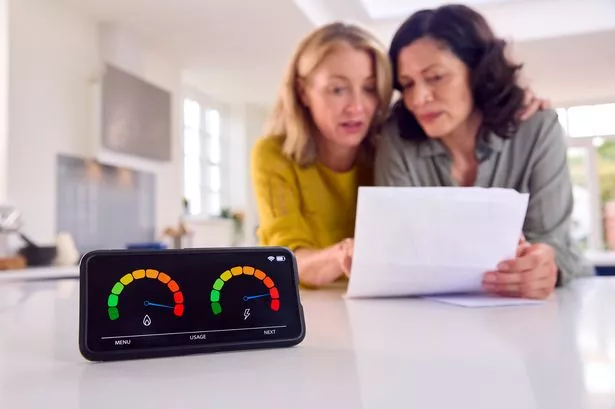The government is handing out the discount over a 10 year period as it increases renewable energy sources around the country A £125 discount will be handed out every 6 months (Image: Getty Images/iStockphoto)
A £125 discount will be handed out every 6 months (Image: Getty Images/iStockphoto)
UK households living near pylons are set to get £250 a year off their energy bills as part of new government plans. Those affected would get £2,500 off their electricity bills over a 10 year period.
This means electricity bills will be cut for thousands living near new pylons, as Labour moves forward with plans to “get Britain building and put communities at the heart of a cleaner, more affordable, homegrown energy system.”
The plans could see eligible households receiving a £125 discount every six months as the government launches a consultation tomorrow, August 8 on proposals included in the Planning and Infrastructure Bill.
It comes as new plans for smart meters will give consumers clearer rights and better compensation, according to the government.
Never miss a story with the MEN’s daily Catch Up newsletter – get it in your inbox by signing up here
Minister for Energy Consumers Miatta Fahnbulleh said: “As we build the infrastructure we need to deliver homegrown, affordable energy, communities must be given a stake.
“That is why we are teaming up with communities hosting new pylons to ensure they receive direct, tangible benefits.
“We are on the side of those who want Britain to get back to what it does best: building for the future, driving innovation and putting communities first.”
Around twice as much new transmission network infrastructure will be needed by 2030 as has been built in the past decade, according to the Government, who released new planning reforms earlier this year.
Rural communities across Great Britain could benefit most from the bill discounts as the government speeds up its efforts to build more renewable energy sources.
This comes alongside confirmation millions of households will be supported to take control of their energy usage and bring down their bills under new plans to transform the how smart meter work.
Join the Manchester Evening News WhatsApp group HERE
New obligations will be placed on energy suppliers to improve every stage of the smart meter process, under plans being put forward on Friday.
The reforms, set to be introduced next year, include new and improved compensation for long installation and repair wait times.
The proposals set out by Ofgem include requirements to cut waiting times for installation appointments and fix meters that have stopped working in smart mode within 90 days – or provide consumers with automatic compensation.
A new guide to smart metering will support families to gain a better understanding of their rights, by clearly setting out in one place everything households can expect from suppliers when they get a smart meter.
Shadow energy minister Andrew Bowie said it was “right that communities get some payback for pylons – with this scheme following initiatives started by the last Conservative government”.
But he added that the public should “be in no doubt” that more communities would see pylons built nearby “as a consequence of Labour’s net zero by 2050 zealotry”.
Mr Bowie said the Government was now having to “scramble to try and build the infrastructure needed to support their mad green projects” and urged more investment in nuclear power rather than solar.
Charlotte Friel, Director of Retail Pricing and Systems at Ofgem said: “Millions of consumers rely on their smart meter every day for accurate billing, cheaper tariffs, automatic meter readings and real-time data to help keep track of spending.
“But we know many customers that want a smart meter wait too long to get one installed or face delays on repairs when it stops working – this needs to change.
“We’re working closely with suppliers to drive improvement, and have seen more than 600,000 faulty smart meters reconnected since last July after we opened compliance engagement.
“This is only the beginning – with automatic compensation, faster fixes, and improved installation standards well on the way, getting a smart meter will be quicker and easier than ever.
“These new rules are about setting clear expectations of suppliers, incentivising them to boost smart meter standards, and protecting consumers from poor service if things go wrong.”
